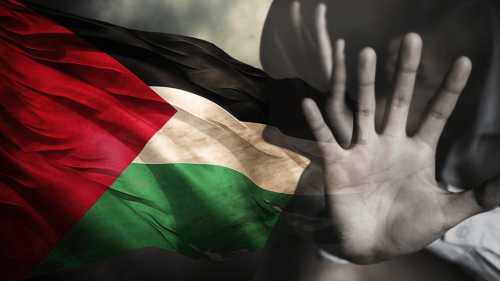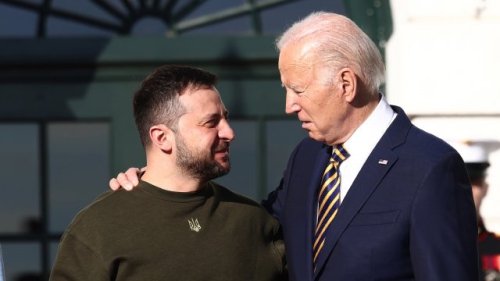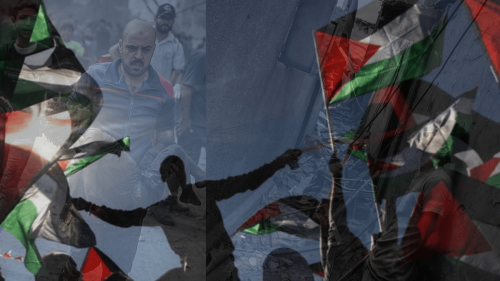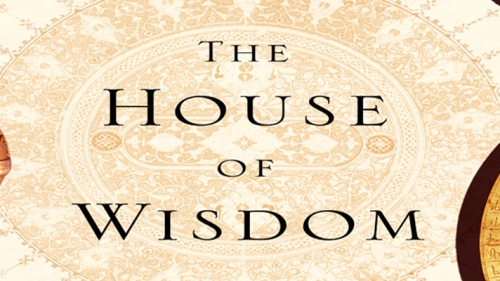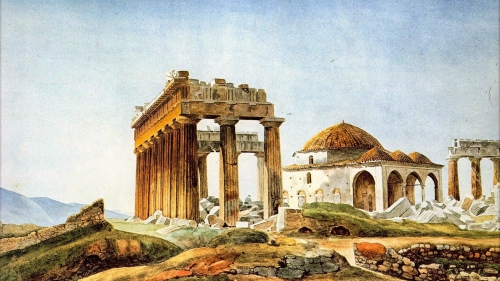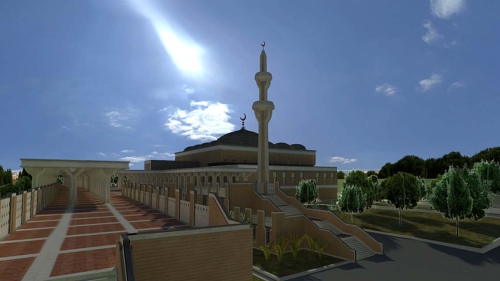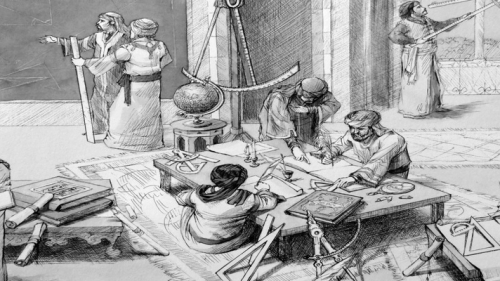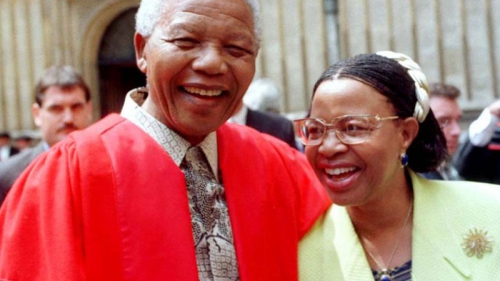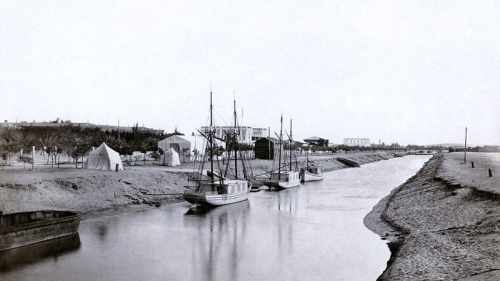Minarets Rise in Germany
 |
| The builders were fined for making the minarets too high. It was a misunderstanding, Gulcek says. |
BERLIN - The chink and scrape of stonecutters echo through the gray-domed mosque that rises like a glimmer of misplaced architecture in a city where the Muslim call to prayer is a widening whisper.
Dusted in marble, workmen scurry in the muted glow of stained glass. Some paint Koranic verses on the walls; others make last-minute alterations to golden-tipped minarets pricking a drizzly skyline. Anxious Berliners sometimes peek into the courtyard, where Ali Gulcek, a husky, nimble man, assures them his religion is not a threat.
"I need to enlighten the Germans so their prejudice of Islam will go away," said Gulcek, whose Islamic organization is building the mosque. "Our mosque will be completed in May. We've wanted a legitimate mosque for so long. For years, we've been meeting in backyards and basements. We don't want to hide anymore."
Gulcek's mosque is part of the surge in Islamic construction sweeping Germany. The number of traditional mosques with their distinctive minarets nearly doubled in Germany from 77 in 2002 to 141 in 2003, according to Islam Archive, a Muslim research group in the city of Soest. An additional 154 mosques and cultural centers are planned, many of them in the countryside, where vistas are dotted with symbols of crescent moons and crosses.
Like the cultural battles over allowing Muslim women to wear headscarves in European schools, mosques are an indication that immigration is transforming social, religious and aesthetic landscapes. Staccato Turkish and throaty Arabic syllables whirl amid European vernaculars, and where once there was a German bakery there is now a Moroccan kebab stand. In some bookshops, the Koran is as prominent as the Bible, and Islamic worry beads sometimes rattle alongside rosaries.
Mosques are landmarks of faith. But in Europe they are also symbols of change that can instigate fear, especially as congregations at Christian churches steadily decline on a continent with the fastest-aging population in the world. A mosque often means a neighborhood is no longer what it was. Skin hues are darker, customs different, and society's failure at integration is laid bare.
For many Europeans since Sept. 11, mosques are perceived - unlike churches or synagogues - as caldrons of radicalism instead of places of worship. That sentiment is likely to endure if Islamic militants were involved last week's train bombings in Madrid that killed 201 people and wounded 1,500 others.
"Building a mosque won't create integration," said Werner Mueller, a pharmacist in a Berlin neighborhood where proposals for two mosques are encountering opposition from government agencies. "These new mosques will make Islam more visible, and jobless and angry Muslim men will go to them. They can become places infiltrated by political Islam."
Such sensitivity stems from the Al Quds mosque's link to Sept. 11: Mohamed Atta and other hijackers had regularly worshipped at the warren of rooms above a gym with smudged windows in Hamburg before they moved to the United States. Thousands of nondescript mosques, some tucked in alleys, others half-hidden in old factories, are scattered across Europe. There are nearly 2,400 in Germany alone, according to the Islam Archive.
The Berlin government is seeking more control over blueprints for larger mosques. The city's planning office wants veto power on all building projects that may impinge upon a borough's character. The veto proposal is expected to take effect this year and could complicate plans for four mosques in the city boroughs of Kreuzberg and Neukoelln. The government says it is not singling out mosques, but trying to bring uniformity to the skyline.
"Berlin has a large Turkish population," said Petra Reetz, a spokeswoman for the planning office. "That always has to be a consideration. But we are still a Central European town and we'd like to keep the face of a Central European town, not a Turkish town."
Such sentiments have made Mehmet Bayram a patient architect. The projects he treasures most, including mosques and Islamic cultural centers, are yet to be built, tangled in negotiations with government agencies. Bayram splices architecture, folding Islamic nuances into European designs to make Muslim edifices more palatable to the German eye. What could be considered minarets on the facade of one of his proposed cultural centers, for example, are instead spiraling stairwells.
Bayram described one project like this: "The main entrance gate has a European style, and on the third floor you will find Gothic arches. That is Christian architecture. The dome has a Turkish-Seldshuk form, and the little arches at the upper minarets are of Indian style... It is my intent that the building's street level invites visitors to overcome their fears" about Islam.
Gulcek's mosque is being built south of the city center by the Turkish Islamic Union, one of several Islamic organizations in Germany overseeing construction plans for such projects. Most of Germany's 3 million Turks - the nation's largest minority - belong to the lineage of guest workers who began arriving here in the 1950s to fuel post-World War II reconstruction. This history has made the Turks more entrenched and better organized to finance and build mosques than newly arrived Muslims in other European nations.
 |
| "We've wanted a legitimate mosque for so long," says Ali Gulcek, whose Islamic organization is building the structure that includes a colorful dome. The crew working on the Berlin mosque is down to the finishing touches, Gulcek says. |
Gulcek, a German citizen, moved to Berlin with his parents 24 years ago from the Turkish city of Kayseri. One recent day, as rain fell and the stonecutters sipped tea, Gulcek walked through the courtyard of the new mosque, where a cemetery faced Mecca and the hum of traffic drifted over the surrounding brick wall.
"It's taken 13 years to build," said Gulcek, a smiling, yet exasperated, diplomat of sorts between cultures. "The biggest problem was raising money from Berlin Muslims. Then we found out our minarets were too high, and we had to raise more money for a $100,000 fine from the borough. Why? It came down to a misunderstanding. We didn't know about German law, and the borough didn't tell us.
"It was difficult to explain our idea of the mosque to the Germans. We should have explained it better," he said. "If you communicate, there are fewer problems, but there always seems to be a lace curtain between Germans and Muslims. Europeans have a prejudice and a fear of change."
Communication often seems impossible. Mosque proposals throughout the continent have met with opposition petition drives and street protests. Many mosques and their Islamic clergy exist in parallel, almost sequestered spheres from the larger European community.
"The main problem with integrating mosques into German society is that many mullahs and imams are coming from Egypt, Saudi Arabia and other Islamic countries," said Lydia Nofal, manager of Inssan, a multicultural organization battling with government agencies to build a 65,000-square-foot mosque and community center in Berlin. "One of our main goals is to get Islamic leaders from Germany so they know the language and the culture."
Navigating the sensitivities of race and religion can be difficult. On Sunday mornings, church bells peal throughout Europe's towns and cities. But in many mosques, the Muslim call to prayer, which in the Middle East crackles over loudspeakers atop minarets, is almost hushed. The devout check their watches for prayer times, and quietly kneel.
The mosque building boom, mirroring the growth of an Islamic population in Europe that has doubled over the last decade to between 13 million and 15 million, may be most pronounced in Germany. But France, home to Europe's largest Islamic community, has 49 traditional mosques, including nine large ones in Paris. The estimated number of mosques in Britain - most of them converted buildings, apartments or prayer rooms with no minarets - has jumped from 613 in 1996 to about 1,000 today.
In Berlin's Kreuzberg borough, on a street scented with skewered lamb and spices and flecked with women wearing head scarves, Heidemarie Weigand and her husband, Hans-Juergen, were having a going-out-of-business sale at their toy train store. Heidemarie said her old customers had died or moved away and few newcomers were buying engines and cabooses these days.
"There's so many Turkish faces. There are hardly any Germans here, and the foreigners have no use for trains," said Heidemarie, her graying hair brushed back over a mauve sweater. "Many Germans aren't happy about the mosques. I don't think Turkey would like it if we went there and built a bunch of Christian churches."
A few doors down, Burhan Kesici, a soft-spoken man with a round face and a thin beard, sat in a green leather chair and spoke of the mosques his Islamic Federation in Berlin hoped to build. He believes in integration, he said, and even went against the wishes of his Turkish parents and wife by becoming a German citizen. Kesici understands the sensitivities that arise as Islamic culture deepens its imprint on Europe.
"There are a lot of new Islamic projects in the Kreuzberg-Neukoelln area," Kesici said. "The Germans may be saying, 'This is dangerous for us. There's too much of a concentration of religion in a small area.' But we Muslims have to be seen as normal. The mosques will allow us to show ourselves off better to society. We can help with the crime and social problems in these neighborhoods."
The Islamic Federation represents 26 Islamic organizations and 12 of Berlin's 75 mosques - only three of which have minarets. The federation, Kesici said, is in the midst of tedious negotiations with Kreuzberg borough on the design of a $4.9-million mosque and community center project. The government wants the federation to shrink the mosque by 40% so it will not overwhelm the neighborhood.
"The world is changing," said Kesici, who has a political science degree from the Free University of Berlin. "The European Union is expanding, and people are living with different cultures. I am a German and a Muslim. But the head scarf and mosque issues are showing us they don't want to accept our values. They're saying, 'You can be German, but a second-class German.' "
Kesici's dream mosque, designed by architect Bayram, may remain a blueprint for several more years. Gulcek's mosque is stone and steel and colored-glass reality. It will open in two months. Christians and Jews and even secularists will be invited.
"Fifty years ago when the Turks first came," Gulcek said, "they went from their dormitory to the job and back to their dormitory. They would never have imagined that one day a mosque would be built here. And now Turkish businessmen have German employees. So I can imagine that in another 50 years names like Ahmed and Mehmet may sound natural to the German ear and one day may be even sitting in Parliament."
Los Angeles Times staff writers Petra Falkenberg in Berlin and Achrene Sicakyuz in Paris and special correspondent Bruce Wallace in London contributed to this report.
Source: http://www.latimes.com/
Related Suggestions
wassalam
fathmah
1. After Prophet Muhammed (PBUH) passed away, when 1st solid, (permanent/concerete) mosque was built the sahabas RA (companion of Prophet (PBUH)) were very sad and thought deen (islam) has been lifted (gone) from earth.
... also that sahabas (companion of prophet (PBUH)) tried to stay away from shiny things as it brought love of this world in their hearts, instead of love and attraction of hereafter.
Another initial bidaat (acts NOT done by Prophet Muhammed(PBUH) that came just after Prophet Muhammed (PBUH) passed away was when muslims started eating twice a day.
Before they use to eat only once a day.
Islam shows how mankind should live, do things.
It is Not about artitecture and building beautiful shiny concrete mosques all over the world, while at the same time many (muslims and non muslims) on this earth starve to death and their basic needs are not met. And live in Injustice.
Muslim's acts, individual or collective efforts should be done to Please Allah and must be done as done and instructed by Prophet Muhammed (PBUH).
also, i like how you threatened me with your religion. very nice there. your arrogance is beyond description.
as a german-american, i will say whatever i feel like saying... you seem to. my grandfather fought and died fighting both the germans and the japanese. my bloodline was destroyed in that war. so, when i take the german side of an arguement, it's probably based on principles and not racism or xenophobia.
i find germay's mass immigration policy completely crazy and i am disgusted by it. my disgust is not based on anything other than common sense. i find equal disgust in the u.s. immigration policy as well. germany has a much bigger problem when it has people in it that say things like "As concerns Gemany, is her time now to have something alian". that should send a chill down any geerman's spine.
one more thing, the u.s. immigration policy for many muslim countries constitutes a "brain drain" which accounts for your over-achievers. i'm sure if we had a mass immigration of muslims here it would look much like it does in europe. funny you mentioned the f.b.i. though. we all remember the muslim f.b.i. agent, Gamal Abdel-Hafiz. if he's an example of a muslim f.b.i. agent, we might as well have al-qaeda running it.
as much as you might like to believe, i am niether stupid nor bigoted in any way... and no, i will never shut up. why do muslims like to censor free speech so much?
Why would anyone doubt that I see American masjids as no threat? Not only do they improve the look of the communities they reside in (and believe me, some of the masjids here are gorgeous), but they help to reinforce America's belief in the "melting pot". Europeans might have problems with it, as we can see when they go crazy over hijabs, but I ain't a European.
As far your allegations that I don't believe what I say, I can assure you that you're mistaken. I can't think of a single thing I've said here that hasn't been sincere. I have stated many times that I don't hate Muslims, and most Americans feel that way too. I have said that I believe most American Muslims to be good people. Again, the vast majority of my countrymen would agree.
At the same time, I have repeatedly expressed my unease with the Muslim world. Do other Americans feel the same way? Can't say for sure, but when I think about the recent war in Iraq it makes me believe that I'm not completely alone in my unease.
Consider for a moment that the war last year wouldn't have had popular support if it had taken place in the months preceding 9/11. A year later, the support rose and continued to rise well into March 2003. And this support never dwindled even during those times when Americans believed the invasion was going badly. Why do you think most of us were so willing to accept sacrifices in prosecuting this war? One thing that differentiates the American public from the rest of the world is the belief in a link between 9/11 and Saddam Hussein. In fact, many of us still believe this.
If you tell me that there is no solid evidence linking Saddam and 9/11, I will agree. If you tell me that it's almost impossible that Saddam and UBL could have ever forged an alliance, I can probably buy that too.
What's wrong with nationalism? It's merely a love of one's country, and I have many reasons to love America. And since you're American as well, I'm sure you understand. Of course, our way is not appropriate for everyone and I have no illusions about that. But I see nothing bad about believing that our country is worth fighting for, and even worth dying for. From where I stand, I have a lot of reasons to thank God and country.
As far as who's side I'm on, I think that should be clear. ;)
Also, perhaps we could try showing at least a little more gratitude for our nation's blessings, at least for the sake of international appearances. Oh -- and a show of nationalistic pride is not the way which I myself would recommend we try showing it.
I don't know why you're so resentful towards me. My comments on this article were one of the few in which didn't criticize the goings on in the Muslim world. I see nothing arrogant about feeling optimistic for my country's economic prospects. Things are gonna be great and that's that.
Jealousy is not a virtue.
Muslims of the West must realize that our main function here must be to take the message to a people, who I think (but Allah knows best), will be better carriers and practitioners of the message than present day Arabs and Indians and Pakistanis (and others).
When we move into a community and erect a strange looking "Eastern" structure, what we are in effect doing is saying to the locals. "You do not belong here. This is ours. Keep away". This may not be our intention, but this is the result.
Muslims! Islam is a message and a mission, and it belongs to all humanity!
Build your masjids so that it blends into the local architecture, because it belongs there! Let people feel welcome.
Think! Think! Think!
I loved the content of this article. I love for the Germans and the Europeans, Jewish and Christian, in general to cease fearing Islam. Islam is only a religion which guides people to the right path of morality, no more and no less. Without Islam, millions would turn into monsters, cannibals, and atrocious individuals with no soul within them. Islam will only strengthen Europe and the European youth in myriads of ways. It will help fight against crime and injustice. I dream of the day when those who are fearful of Islam will make an effort into knowing what it is all about. Hopefully, that day will come sooner than we think.
The true Islam will emerge from the West and will oppose all ideologies which uphold and encourage violence in all its forms. Otherwise, Islam would not be the fastest growing religion in the world today.
Thank you for the article.
IMMIGRATION AND THE HOSPITALITY OF GERMANY AND WESTERN COUNTRIES INTO AN INSTRUMENT OF AGGRESSION AND DOMINATION. THIS IS ILLITERACY WRIT LARGE. ABOVE ALL, THIS IS NOT RELIGION.
NOTWHERE IS THERE ANY ACKNOWLEDGEMENT OF THE HOSPITALITY EXTENDED BY THE HOST COUNTRIES TO ILLITERATE MASSES FROM MUSLIM COUNTRIES. THERE IS GROWING RESENTMENT AGAINST THIS TAMASHA.
THROUGHOUT HISTORY, IMMIGRANTS HAVE ALWAYS WORKED TO STRENGTHEN THE HOST COUNTRY. UNFORTUNATELY,
THE POPULATIONS OF HOST COUNTRIES ARE INCREASINGLY VIEWING MUSLIM IMMIGRANTS AS BEING HOSTILE TO THE HOST COUNTRIES AND PURSUING HIDDEN AGENDAS THAT HAVE NOTHING TO DO WITH GOOD CITIZENSHIP. THIS IS A VERY DANGEROUS TREND AND RESPONSIBLE MUSLIM LEADERS WITHIN MUSLIM COMMUNITIES NEED TO ADVISE THEIR CONSTITUENTS TO SOBER DOWN AND RECOGNIZE THE STIFF RESISTANCE THAT IS BEGINNING TO TAKE SHAPE IN THE HOST COUNTRIES. MUSLIM IMMIGRANTS ARE NOT THE SELF-APPOINTED AMBASSADORS OF ALLAH AUTHORIZED TO
MAKE A MESS OF THE HOST COUNTRIES JUST AS THEY HAVE MADE A MESS OF THEIR OWN ISLAMIC NATIONS.
MASHALLAH.
i also feel that it is good that the architecture will also include the german style, because i believe in diversity of culture. it is good that the immigrants consider that they are in a new home country with an existing culture and style - acceptance of this may go far in easing tension among native germans.
Its so..PLeasure to know the rising of Minarets in Germany.May Allah Almighty Help them to achieve the their Aim innext 50 years ..Inshallah.
As Germany is One of the Developed country of European countries.Its very pleasure to se. growing ratio in years.As Islam ..is not limited to Islamic countries but for the entire world..and Allah Almighty will definately help the Muslim Brothers and Sisters to explore the Islamic way in the Best Possible way..
I pray to Allah the Most merciful..to Help the Muslims in their work.which is the supreme success.
Allahhafiz
The future's so bright, I gotta wear shades.







